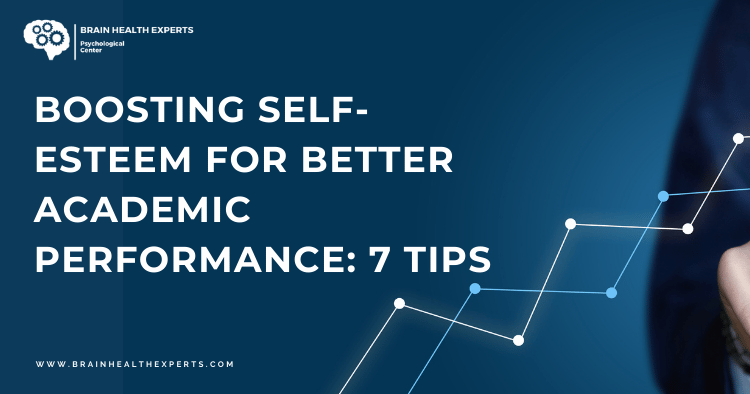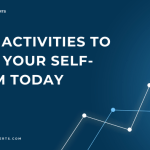Table of Contents
- Understanding the Connection Between Self-Esteem and Academic Performance
- Tip 1: Set Realistic Goals
- Tip 2: Celebrate Small Wins
- Tip 3: Cultivate a Growth Mindset
- Tip 4: Surround Yourself with Positive Influences
- Tip 5: Practice Self-Compassion
- Tip 6: Engage in Extracurricular Activities
- Tip 7: Seek Professional Help When Needed
- Frequently Asked Questions
Understanding the Connection Between Self-Esteem and Academic Performance
Self-esteem refers to the way you perceive yourself and your self-worth. It’s a crucial element in shaping your behavior, attitudes, and overall mental health. When it comes to academics, self-esteem plays a vital role in influencing motivation, engagement, and even the ability to tackle challenges. Studies show that students with higher self-esteem tend to perform better academically because they are more likely to participate in class, take risks, and engage with the material.
“Students with higher self-esteem are more likely to take on challenges and engage in their learning.”
Conversely, low self-esteem can lead to a lack of motivation, fear of failure, and avoidance of academic challenges. This creates a vicious cycle where poor academic performance further diminishes self-esteem. Therefore, boosting self-esteem can significantly enhance academic performance, making it essential for students to adopt strategies that promote a healthy self-image. For more insights on boosting self-esteem, check out 10 Proven Techniques to Boost Your Self-Esteem Today.
Tip 1: Set Realistic Goals
Setting achievable and realistic goals is the first step toward boosting your self-esteem. When you aim for the stars but fall short, it can lead to disappointment and a negative self-image. Instead, break your academic goals into smaller, manageable tasks. For instance, instead of aiming to ace every subject in one semester, focus on improving your grades in one subject at a time.
Example of Goal Setting:
| Goal Type | Example | Time Frame |
|---|---|---|
| Short-term Goal | Improve math grade from C to B | 4 weeks |
| Medium-term Goal | Complete all assignments on time | 1 semester |
| Long-term Goal | Graduate with honors | 4 years |
“Achieving smaller goals boosts your confidence and contributes positively to your self-esteem.”
By achieving these smaller goals, you’ll gain confidence and a sense of accomplishment, which will contribute positively to your self-esteem.
Tip 2: Celebrate Small Wins
Celebrating achievements, no matter how small, is key to maintaining high self-esteem. Acknowledging your progress reinforces the belief that you are capable and making strides toward your academic goals. So, when you complete a project or receive a good grade, take time to celebrate!
Ways to Celebrate:
- Treat yourself to a favorite snack.
- Take a break and watch a movie or read a book.
- Share your success with friends or family.
“Small celebrations can significantly boost your morale and reinforce your self-worth.”
These small celebrations can boost your morale and reinforce the idea that you are on the right path. For more ideas on enhancing your self-esteem, see 10 Fun Activities to Boost Your Self-Esteem Today.
Tip 3: Cultivate a Growth Mindset
A growth mindset is the belief that abilities and intelligence can be developed through hard work, dedication, and perseverance. This mindset fosters a love for learning and resilience in the face of challenges. To cultivate a growth mindset, start by embracing challenges, learning from criticism, and viewing failures as opportunities for growth.
Strategies to Develop a Growth Mindset:
- Challenge negative thoughts: Replace “I can’t do this” with “I can’t do this yet.”
- Reflect on past challenges: Think about how you overcame obstacles in the past.
- Focus on effort, not just outcomes: Value the hard work you put in, regardless of the result.
“Adopting a growth mindset not only enhances self-esteem but also academic performance.”
By adopting a growth mindset, you’ll not only improve your self-esteem but also enhance your academic performance. For further reading on mindset, refer to Top 10 Must-Read Books on Positive Thinking 2024.
Tip 4: Surround Yourself with Positive Influences
The people you surround yourself with can significantly impact your self-esteem. Seek out friends, family members, and mentors who encourage and uplift you. Positive influences can provide support, motivation, and constructive feedback, making it easier to face academic challenges.
How to Build a Supportive Network:
- Join academic clubs or study groups.
- Attend workshops and seminars.
- Seek out mentors in your field of interest.
“A strong support system can help you navigate difficult times and reinforce your belief in your capabilities.”
A strong support system can help you navigate difficult times and reinforce your belief in your capabilities. For more on nurturing relationships, check out 10 Ways Positive Thinking Transforms Your Relationships.
Tip 5: Practice Self-Compassion
Self-compassion involves treating yourself with kindness and understanding during difficult times. Instead of being harsh on yourself for mistakes or shortcomings, practice self-kindness. Acknowledge that everyone struggles and that it’s okay to face challenges in your academic journey.
Tips for Practicing Self-Compassion:
- Speak to yourself like you would to a friend: Use encouraging and supportive language.
- Remind yourself that imperfection is part of the human experience.
- Engage in mindfulness practices to stay present and aware of your emotions.
“Fostering self-compassion builds resilience and contributes to a healthier self-esteem.”
By fostering self-compassion, you can build resilience and a healthier self-esteem, which will positively impact your academic performance. Explore 10 Effective Mindfulness Techniques for Daily Calm for more mindfulness strategies.
Tip 6: Engage in Extracurricular Activities
Participating in extracurricular activities can significantly enhance your self-esteem. Whether it’s joining a sports team, a club, or volunteering, engaging in these activities allows you to discover new interests, develop skills, and meet new people.
Benefits of Extracurricular Activities:
- Skill Development: Gain new skills that can transfer to academic settings.
- Social Connection: Build friendships and a sense of belonging.
- Stress Relief: Take a break from academics to recharge.
“Engaging in extracurricular activities not only enhances your skills but also boosts your confidence.”
Explore options available at your school or community to find activities that resonate with you. For additional ways to manage stress while engaging in school activities, refer to 10 Proven Stress Management Techniques for Daily Relief.
Tip 7: Seek Professional Help When Needed
If you find that low self-esteem is significantly impacting your academic performance and daily life, it may be time to seek professional help. A counselor or therapist can provide valuable support, helping you develop strategies to improve your self-esteem and cope with academic pressures.
When to Seek Help:
- Persistent feelings of worthlessness or inadequacy.
- Difficulty concentrating or completing tasks.
- Frequent feelings of anxiety or depression related to academics.
“Seeking help is a sign of strength and an important step toward improving your overall well-being.”
Remember, seeking help is a sign of strength and an important step toward improving your overall well-being. For more resources on mental health support, visit Top 10 Online CBT Resources for Effective Mental Health Support.
Frequently Asked Questions
Q: How does self-esteem affect my grades?
A: Higher self-esteem often leads to increased motivation, participation, and resilience, all of which can contribute to better grades.
Q: Can I improve my self-esteem overnight?
A: Improving self-esteem is a gradual process that requires consistent effort and practice of the strategies mentioned above.
Q: Is it normal to have fluctuations in self-esteem?
A: Yes, it’s completely normal to experience fluctuations in self-esteem. What’s important is to have strategies in place to boost it when needed.
Q: Are there any resources for learning more about self-esteem?





